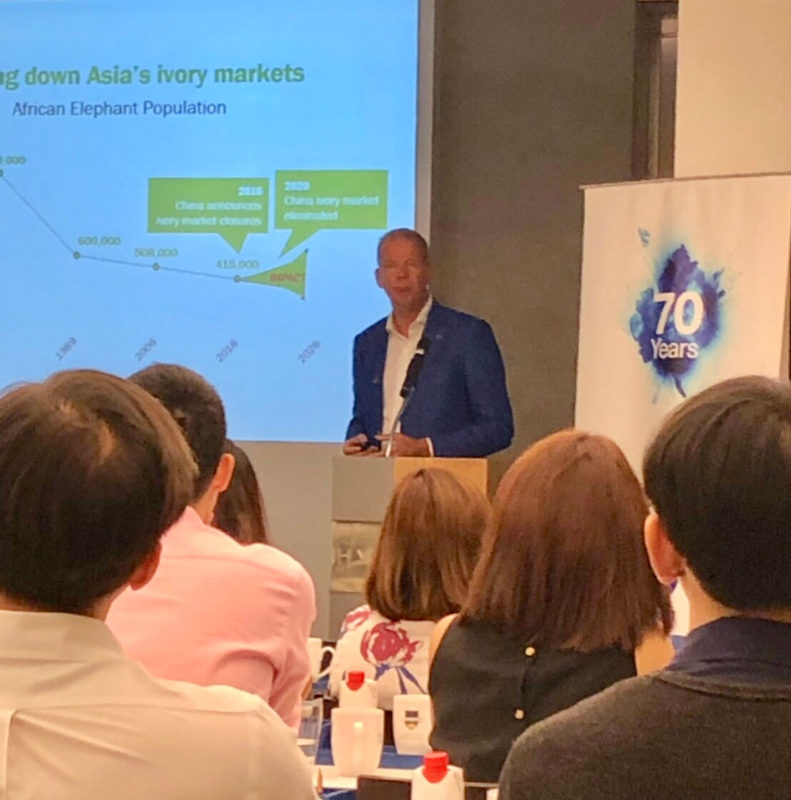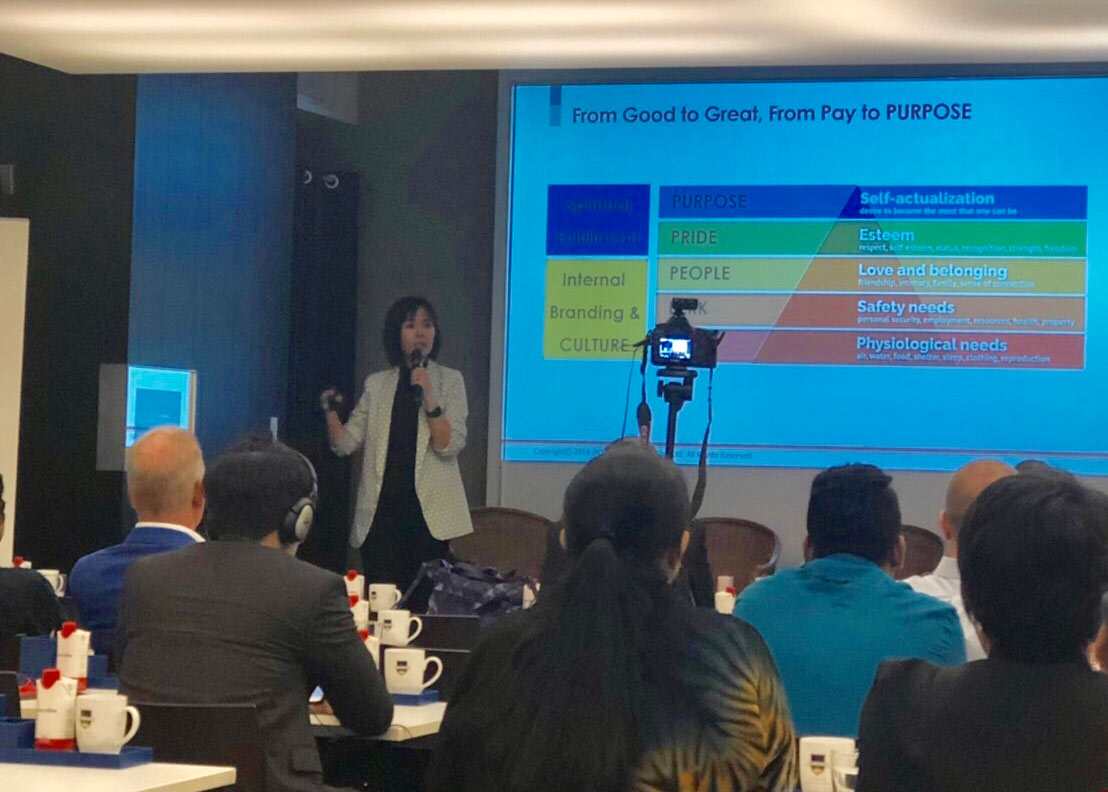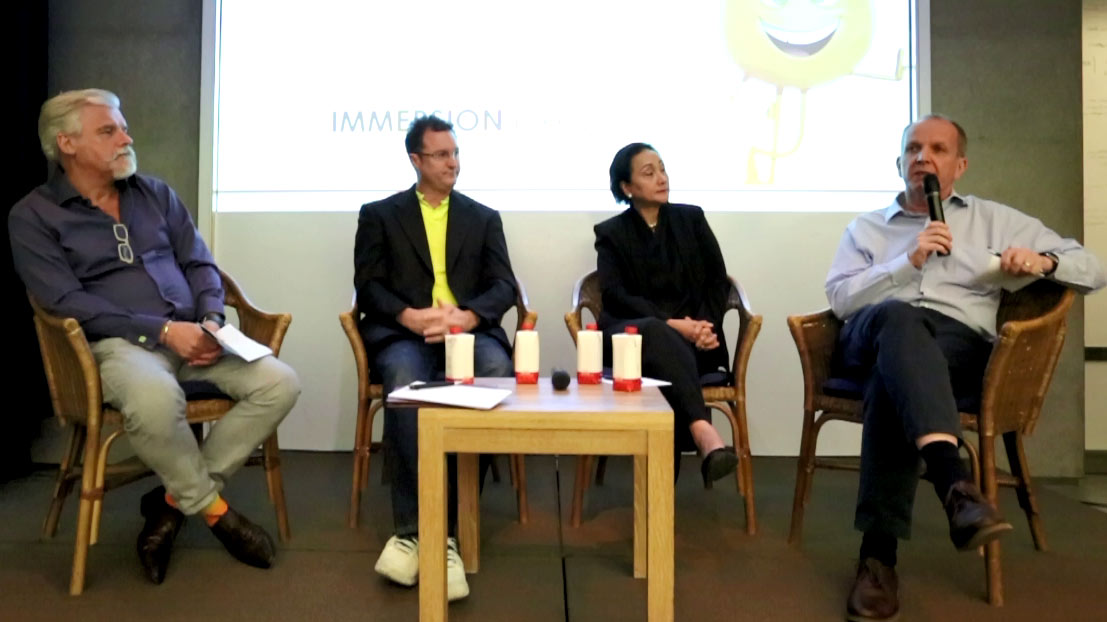An ESOMAR and Thailand Market Research Society joint seminar to understand how research can help us live better lives.
Sustainability, environmental disasters, animal extinction, global warming, human wellness. We seem to live in a time where we are surrounded by potential crisis and calls for action. Many organisations from governments, to businesses to private and public thinktanks and action groups are trying help in some way. But what is the right way, the right message the right target. Better market research will certainly help.
It seems like a perfect time for market research to step in as an industry and bring the expertise to understand the why and what and how of these issues and getting better public response and involvement. Having noted so many great presentations dealing with sustainability in one form or another at recent ESOMAR conferences The Thailand Market Research Society (TMRS ) approached ESOMAR to work together on a joint event bringing great examples of market research helping make good causes more effective. An evening seminar was held on 23rd July 2019 in Bangkok under the title “ Research for Good”.
Four short but very impactful presentations and an engaging panel discussion made for a lively evening and a lot of great learning. All of the presentations are available through contacting the TMRS. In short though :

Wander Meijer from Globscan in Hong Kong joined us and shared a version of his award winning presentation “Research to the Rescue” which focused on market research used to help on-going campaigns to change behavior in China around demand for ivory and in so doing reducing the chances of elephant extinction. Wander shared the terrible plight of world elephant populations and the efforts to ban ivory trading. He explained how government bans were good but often not effectively enforced and how the real answer lies in persuading the right audiences, what he defined as “ban influenced audiences” to reinforce behavior. One interesting example was focusing on the new rich of Chinese millennials who on one level want the prestige of owning distinctive ornamentation but are also open to persuasion when messaging is targeting them correctly.
Grant Bertoli from Marketbuzz in Thailand started by shocking the audience with a number of very recent examples of the pollution of Thai waterways with plastics and industrial waste and it’s effect on food. Numbers like 70 billion plastic bags used in Thailand each year, a million tons of waste dumped in the ocean surrounding Thailand each year certainly get attention. He then highlighted that in recent research 45% of Thais place environmental concerns as their NO.1 concern. But change is slow. Who should act ? 45% again said it is up to the government to change things, 42% felt it is up to citizens and 88% say they will support a brand that show conscience. But as the discussion showed actually getting action from companies is slow. By publicizing research results about public concern and willingness hopefully more companies can be encouraged to openly experiment provided the price point difference can be minimized.
Chukiat Wongtaveerat from Ipsos Business Consulting did a wonderful job of explaining the full value chain of plastic. While recognizing that the current public awareness and reaction to plastic bags and straws is important this forms only a small part of the use of plastic in the delivery of everyday items. Research showed that these items are associated now with a lot of negativity and this is helping drive awareness. However deeper research brings to life the need for more educational programs. 67% of companies say they are working on the plastics value chain but fuller transparency is needed and will result in higher appreciation. Chukiat also talked through many examples of brands working to replace plastics and how they in turn.

Dangjaithawin Anantachai ( Khun Orm ) from Intage Thailand took us through the work she has done for her PHD thesis around moving employees from good to great by focusing not on pay and transactional rewards but by ensuring they are a part of a brand or companies purpose. By thinking “inside the box” of how to bring greater sustainability to your workforce companies can in turn make themselves more attractive to a wider audience. Khun Orm focused on the multi-generation workforce of today and tomorrow and the need to focus on corporate equity as the element to bring employees together. Life purpose is now well researched and increasingly top of mind for employees decision making and in the Thai context is highlighted by this being a high-context society where flexibility is needed. Incorporating purpose and pride in the way a company communicates brings alive greater benefits on the job and enables companies to add real value to their offering to their staff and to customers.
Bas Fransen from Hong Kong based Ecomatcher explained how his company has used research to understand that rewarding people by helping plant trees bring eco friendly solutions to life but also needs to be done more professionally to have real long term value. So his team take care of organizing and tracking each tree planted and through live apps allows individuals to see how “their trees” are growing, affecting the environment and adding to the planets future. And in an example of how easy it is to use the service as a reward mechanism in research participation all attendees at the seminar automatically had the app sent to their phones and a tree planted in their name while he was talking. Research and activation in motion!

A panel of Eleanora De Guzman from USA Wildlife Asia, Stephen Watson from TRAFFIC and Randall Shannon from the Marketing College of Management at Mahidol University and moderated by the author of this summary (Dave McCaughan) then discussed issues like the need to understand better the sources of information around sustainability issues, the need to focus messaging in order to make impact and examples of how companies can be involved by understanding the real longer term brand value in such connections.
So what did the seventy plus attendees learn? Maybe three main take-outs:
- Be specific in who you target: maybe no real news to experienced marketers and researchers but in the world of “trying to do good” too many messages are too vague, too universal. Many companies and causes assume that they need to tell everyone about what they see as a key issue. That probably is true but to be effective as in all communication you need to define who really is likely to react to and act on the message being delivered.
- Personalize messaging: Wander Meijer opened the evening by reminding us that if you are trying to help save animals then make sure they have names. That personalization, humanization of the issue immediately reduces barriers and brings the messaging more alive both in the research and the final communications stages.
- Bring alive the “3rd moment of truth”: Chukiat Wontaveerat finished by pointing out that consumer interest is increasingly driving sustainability as a decision factor. He described how the now well worn and researched consumer journey from exposure to decision making is now finishing with a stage where environmental implications are becoming make or break. As more and more brands and organisations release through apps, on-pack messaging and other communications the impact of their whole product development and delivery chain so people are learning to look for more of this information and making decisions based on it. sustainability is and will drive.
Thanks to Craig Griffin, Thailand ESOMAR representative and Grant Bertoli, President of TMRS for organizing. The presentations shared at the event are available upon request by contacting grant@buzzebees.com or craig@fuelwithinsight.com


